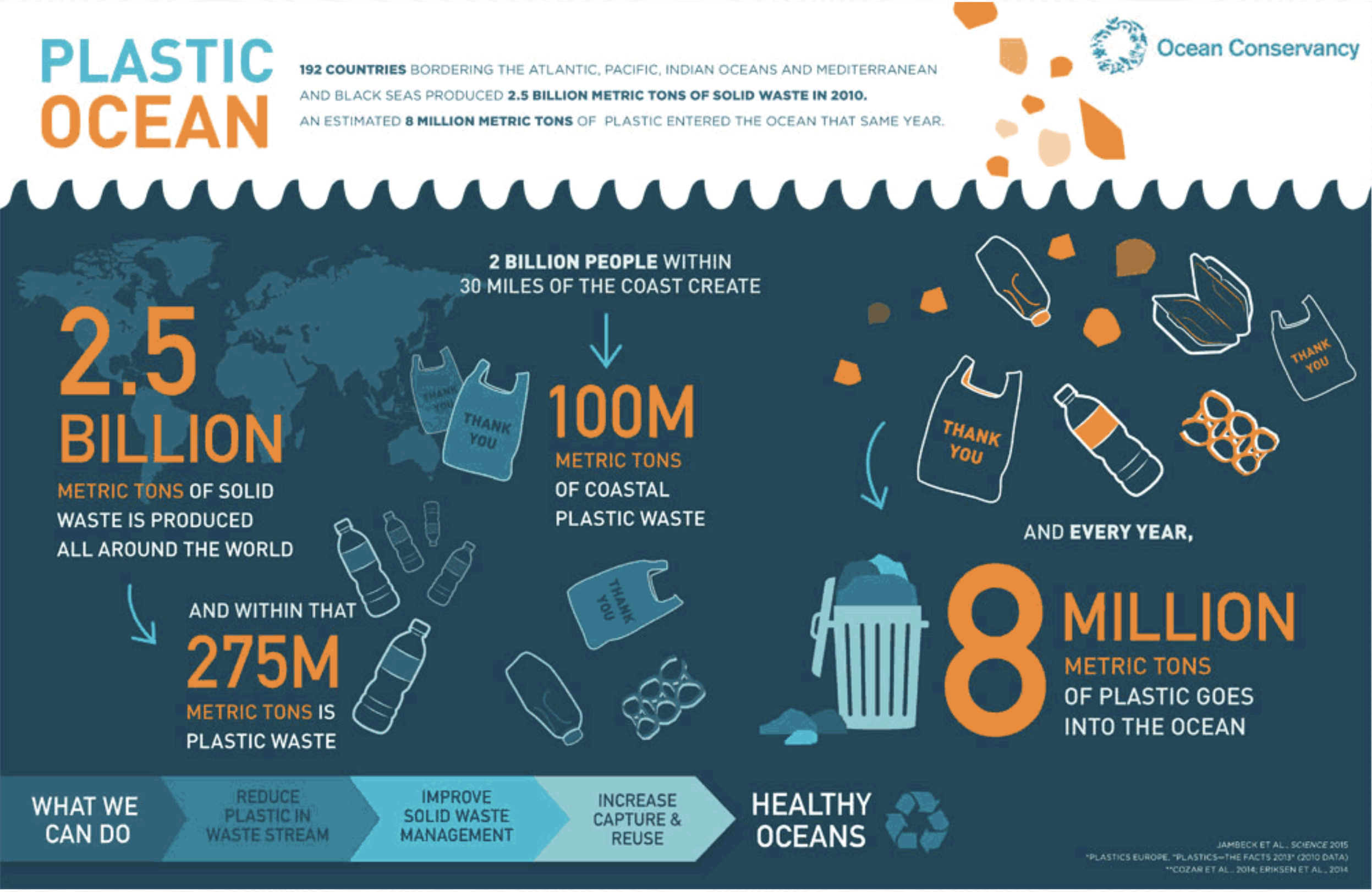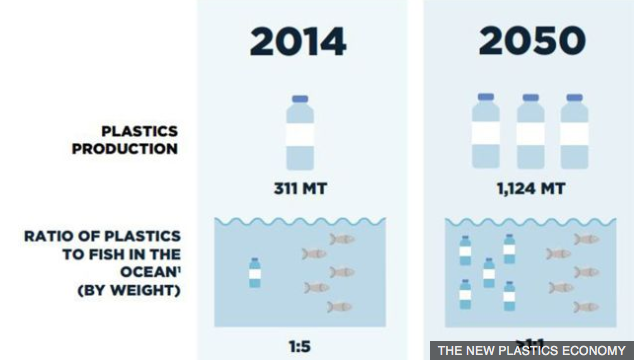THE WORLD HAS a plastic pollution problem that is snowballing. There is no doubt plastic is in our everyday lives from plastic bags, to straws, to spoons and forks, to water bottles, to almost anything. We need plastic or many of these products wouldn't
be available, right? However, if I asked you do you know where all the plastic we use ends up in? Would you know the answer? You might first say, “plastic doesn't go anywhere because it's recycled”. That would be amazing and wonderful if it were
true. The truth is less than a fifth of plastic is recycled. It makes matters worse when 40% of all plastic produced is used in packaging and much of that is only used once and then discarded. So if the plastic is not recycled then you might say,
“Plastic is taken to a landfill”. Dumping millions and millions of tons into landfills is not a solution. Plastic may take up to 500 years to decompose in these landfills and plastic can potentially leak pollutants into the soil. So where does
plastic really go? The majority of the plastic we use in our everyday lives ends up in the ocean. Each year, an estimated amount of 8 billion metric tons of plastic waste enter the ocean. Plastic is not like salt, it is not SOLUBLE.
The chart above shows the number of plastic entered in the ocean caused by humans in a year. Looking at the graph, you may ask what is Metric tons? Or how much is metric tons? At the bottom, there is a comparison of how much 8 billion metric tons is to
things we are more familiar with.
It's crazy to think how much plastic enters the ocean and you probably weren't aware of all the plastic. So now imagine all this plastic enters the ocean ONCE a year, how much plastic would there be in ten, twenty, or even fifty from now?
This chart shows what is to come by 2050 if we continue with our carelessness about the ocean. It is predicted that by 2050 there would be an even ratio of fish to plastic or MORE plastic than fish in the ocean. That is depressing to hear and it's even
more horrifying that it’s not far from being reality.




